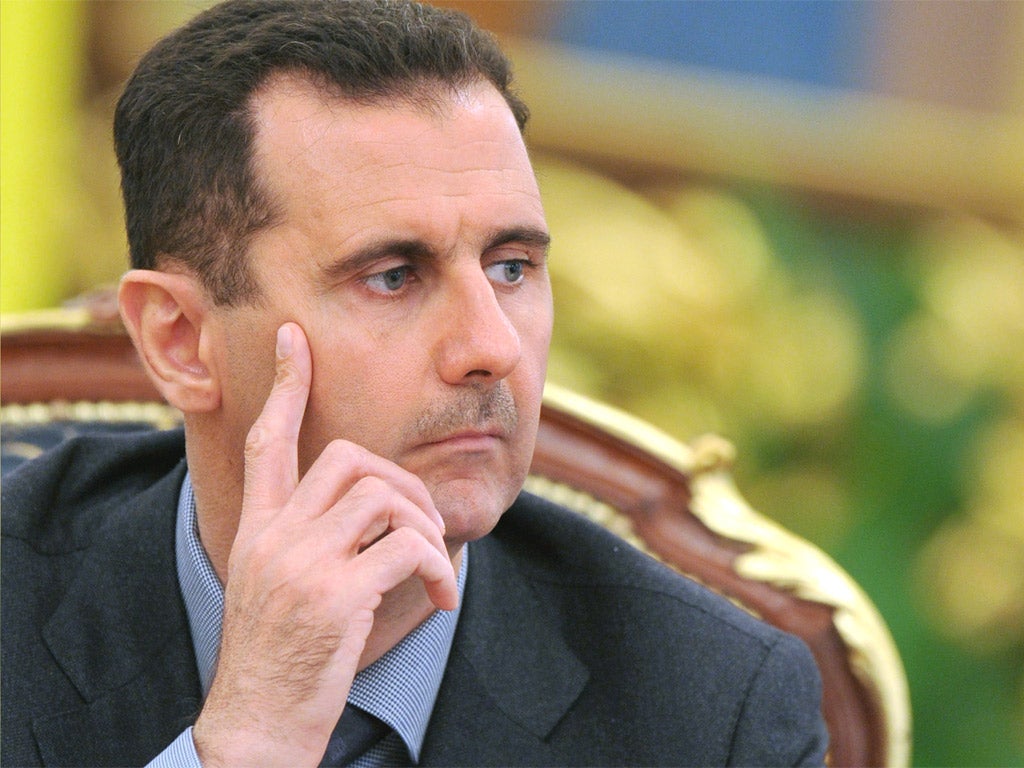Syria crisis: 'Massive evidence' implicates Bashar al-Assad in war crimes says UN
Navi Pillay, the United Nations human rights chief has said the highest level of Syrian government is responsible for crimes against humanity

Your support helps us to tell the story
From reproductive rights to climate change to Big Tech, The Independent is on the ground when the story is developing. Whether it's investigating the financials of Elon Musk's pro-Trump PAC or producing our latest documentary, 'The A Word', which shines a light on the American women fighting for reproductive rights, we know how important it is to parse out the facts from the messaging.
At such a critical moment in US history, we need reporters on the ground. Your donation allows us to keep sending journalists to speak to both sides of the story.
The Independent is trusted by Americans across the entire political spectrum. And unlike many other quality news outlets, we choose not to lock Americans out of our reporting and analysis with paywalls. We believe quality journalism should be available to everyone, paid for by those who can afford it.
Your support makes all the difference.There is “massive evidence” that high level Syrian government officials - including President Bashar al-Assad - authorised war crimes and crimes against humanity, the United Nations human rights chief has said.
Navi Pillay said a UN panel investigating abuses in Syria's civil war “indicates responsibility at the highest level of government, including the head of state”.
In a press conference, Mrs Pillay, who heads the UN Office of the High Commissioner for Human Rights, said the scale and viciousness of the abuses being perpetrated by both sides in the conflict almost defies belief, and is being well documented by an expert UN panel of investigators.
She did however add that the UN’s full lists of suspected war criminals will remain locked in her office until the evidence is requested by international or national authorities for a “credible investigation”.
The lists “rightly belongs to the people who suffered violations,” she said, but they also must be kept sealed “to preserve the presumption of innocence,” until proper judicial probes can be carried out that could lead to a trial and prosecution.
Addressing human rights abuses across the world, Mrs Pillay added that although Syria and North Korea - the two countries being examined by a UN investigative panel - represent two of the world's worst human rights violators, there are also concerns with other regions including Central African Republic and Bangladesh.
Join our commenting forum
Join thought-provoking conversations, follow other Independent readers and see their replies
Comments